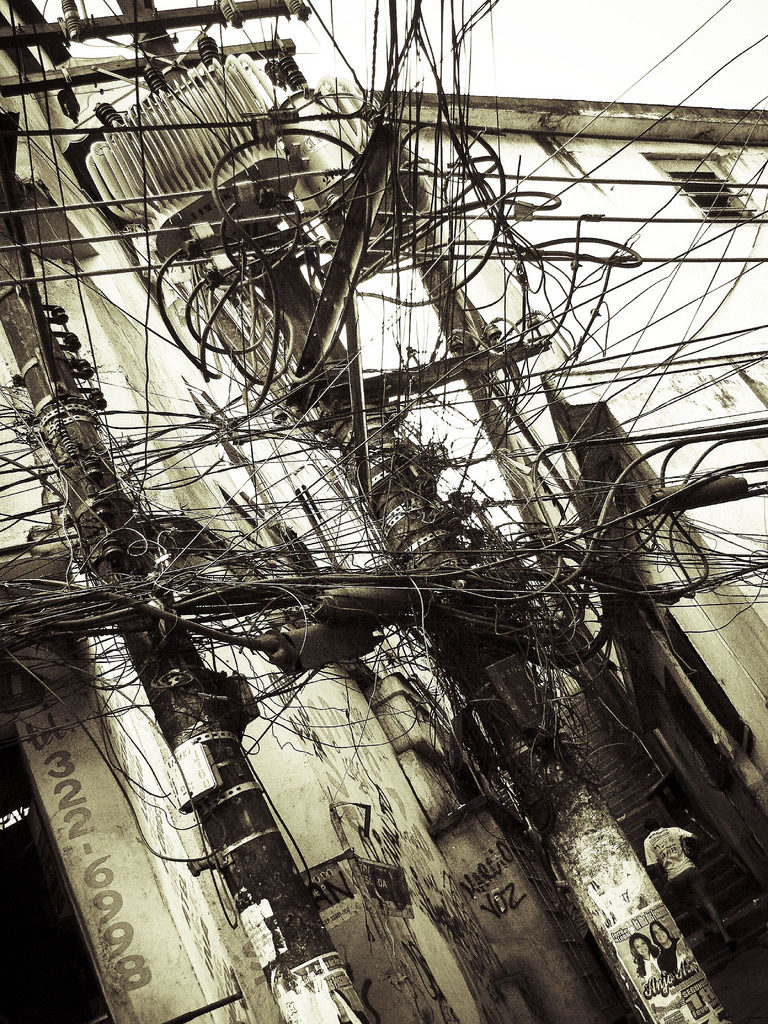This is more of a provocation than a full-fledged story. Feel free to reply with what you think might happen.

Photo by anthony_goto.
You couldn’t get water in the slum. You had to go to the city proper for it, and wait in a long line, and shell out your credits. All the un-augmented chumps would gleam with sweat, their thirst increasing as the queue inched forward. Augments were pretty rare among slum dwellers, but anyone optimized for heat did better. The hardest part was paying, since naturally the slum residents were broke, but the whole process was a commonly despised hassle.
“Why ain’t they just pipe out here?” was the exasperated, rhetorical refrain.
The answer that usually went unvoiced, assumed to be common knowledge: “Making us walk gets Urbancore more credits.” Slum residents weren’t exactly complacent, but they understood the lack of ROI in serving them.
Jamie Dry responded to the niche market need created by this situation: he started a water truck. Most of his customers were gangbangers or cartel men. They could afford the luxury of water hauled by someone else, and they had other things for their own people to do.
Dry’s surname was a joke, bestowed by the urchins who followed him around when they were bored. He called them “my little friends”, sometimes sarcastically and sometimes sincerely. If Dry was particularly flush, or had a party gig, he would hand out ice cubes. Most adults were busy scavenging and any children attached to adults had to work too, but freewheeling street kids would hang around for the possibility of an ice cube. Sometimes Dry’s customers would send them on errands and pay them with calories.
When Dry founded his business, people were surprised that he was able to hook into the roadnet. Transportation API access was supposed to be restricted, and everyone was incredulous that Dry might have gotten a permit. Besides, his truck was hacked together from the body of a much older vehicle and assorted parts. The slum didn’t pay a lot of attention to IP regulation, but certainly everyone knew about it. The clear illegality of Dry’s setup seemed strange considering that he interfaced with Urbancore every day.
Well, follow the money, right? Who benefits? Jamie Dry, of course. His clientele, but they’d just go back to sending their own lackeys if he folded. Dry coulda paid off a netboy to spoof his movements, but the truck would still show up on aerial scans. Maybe it was plain, traditional police graft.
Almost immediately after Dry started operating, people began trying to hijack the truck and its heavy load of clean water. Dry carried a taser on his belt, but that was no good if someone could get the jump on him with a gun. Guns weren’t cheap since 3D printing access was even tighter than transportation, but plenty of firearms circulated through the slum regardless.
Unfortunately for would-be thieves, Dry caught on quick. He had to buy his truck back from a gang once, but then he obtained a sniper drone. It hovered along with him. No one was exactly sure what triggered its attack patterns, since the street kids never got fried, but Dry’s next assailants didn’t fare well.
Andrea’s engineers were torn on whether Dry was a narc or a legitimate hustler, one of their own. Andrea would sit with her elbows on her knees, propping up her chin with her fists, and listen to them bicker. It got far enough that Lewis spent time at home building a model and tweaking a neural net to assign probabilities to the various outcomes. He tried to show it off and Jasper exclaimed, “There’s no way you can be confident enough about half the assumptions —”
Andrea cut things off there. “Back to work, netboys. No credit in solving this mystery.”
Best response so far, from Eth Morgan: “The water is allowed because it’s laced with various experimentals. The slumdwellers are unwittingly in human trials, because if they die no-one cares, they’re in worse conditions so it sets a good lower bound, and if it’s uncovered it can be trivially spun as secret philanthropism.”


